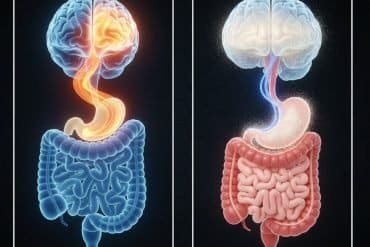Summary: Research shows that the way you smile in a photograph can reveal key personality traits like warmth, trustworthiness, and conscientiousness. Social psychologists found that people with a Duchenne Smile, which involves both mouth and eye muscles, are perceived more accurately than those with neutral expressions.
This smile is hard to fake and can communicate important aspects of personality, even without speaking. Witkower highlights privacy concerns, as these personal traits can be exposed in everyday photos like those on LinkedIn or dating platforms.
Key Facts:
- Duchenne Smiles reveal traits like warmth and trustworthiness.
- People with a Duchenne Smile are judged more accurately than with neutral faces.
- The study raises privacy concerns about revealing personality through smiles.
Source: University of Amsterdam
The way you smile on LinkedIn, a dating platform, or in your passport photo reveals more about your personality than you might think.
Research by social psychologist Zak Witkower shows that we can accurately estimate key character traits of others based on how someone smiles in their photograph.

For his research, Witkower focused on the so-called Duchenne Smile. This smile, which is known for communicating happiness, involves the specific muscles that raise the corners of the mouth, and that circle the eyes. For his study, Witkower and colleagues had a little over 300 people sit in front of the camera and asked them to smile.
‘About half adopted the Duchenne pose,’ says Witkower.
‘Not everyone smiles the same, but especially people who describe themselves as warm, trustworthy, conscientious, or less aggressive and hubristic naturally demonstrate that specific smile.’
Duchenne smile
‘Duchenne smiles can also tell others a lot about your personality,’ says Witkower.
A second sample of roughly 1000 participants were asked to identify the personality traits of warmth, trustworthiness, conscientiousness, aggression and hubris, from either a smiling or neutral photograph of a person from the original sample. The assessment made by the viewers was compared to what the original participants said about themselves.
‘Viewers making assessments based on a smiling face were generally more accurate than those assessing a neutral face. In fact, the accuracy of these judgments was linked directly to observing Duchenne smiles.’
According to Witkower, it’s not easy to fake this smile. ‘Someone who attributes colder character traits to themselves cannot easily switch to a smile as favorable as the Duchenne Smile. They may instead show an asymmetrical smile, or only smile with the corners of their mouth but keeping the eye muscles less engaged.’
‘You are more or less forced to give away this kind of information about yourself in all kinds of places
.’
A revealing smile
The smile thus ‘reveals’ aspects of who we are. And according to Witkower, it raises questions about privacy.
‘Our smile is everywhere. On your LinkedIn profile, on a dating site, in a yearbook, on an employee badge—it’s often the first thing people see of you, even before you’ve introduced yourself. It’s important to be aware that our smile reveals personality traits to others,’ says Witkower.
‘And the question is whether that’s fair. You are more or less forced to give away this kind of information about yourself in all kinds of places where you no longer have control over it.’
About this personality and psychology research news
Author: Zak Witkower
Source: University of Amsterdam
Contact: Zak Witkower – University of Amsterdam
Image: The image is credited to Neuroscience News
Original Research: Open access.
“Smile variation leaks personality and increases the accuracy of interpersonal judgments” by Zak Witkower et al. PNAS Nexus
Abstract
Smile variation leaks personality and increases the accuracy of interpersonal judgments
People ubiquitously smile during brief interactions and first encounters, and when posing for photos used for virtual dating, social networking, and professional profiles. Yet not all smiles are the same: subtle individual differences emerge in how people display this nonverbal facial expression.
We hypothesized that idiosyncrasies in people’s smiles can reveal aspects of their personality and guide the personality judgments made by observers, thus enabling a smiling face to serve as a valuable tool in making more precise inferences about an individual’s personality.
Study 1 (N = 303) supported the hypothesis that smile variation reveals personality, and identified the facial-muscle activations responsible for this leakage.
Study 2 (N = 987) found that observers use the subtle distinctions in smiles to guide their personality judgments, consequently forming slightly more accurate judgments of smiling faces than neutral ones.
Smiles thus encode traces of personality traits, which perceivers utilize as valid cues of those traits.






